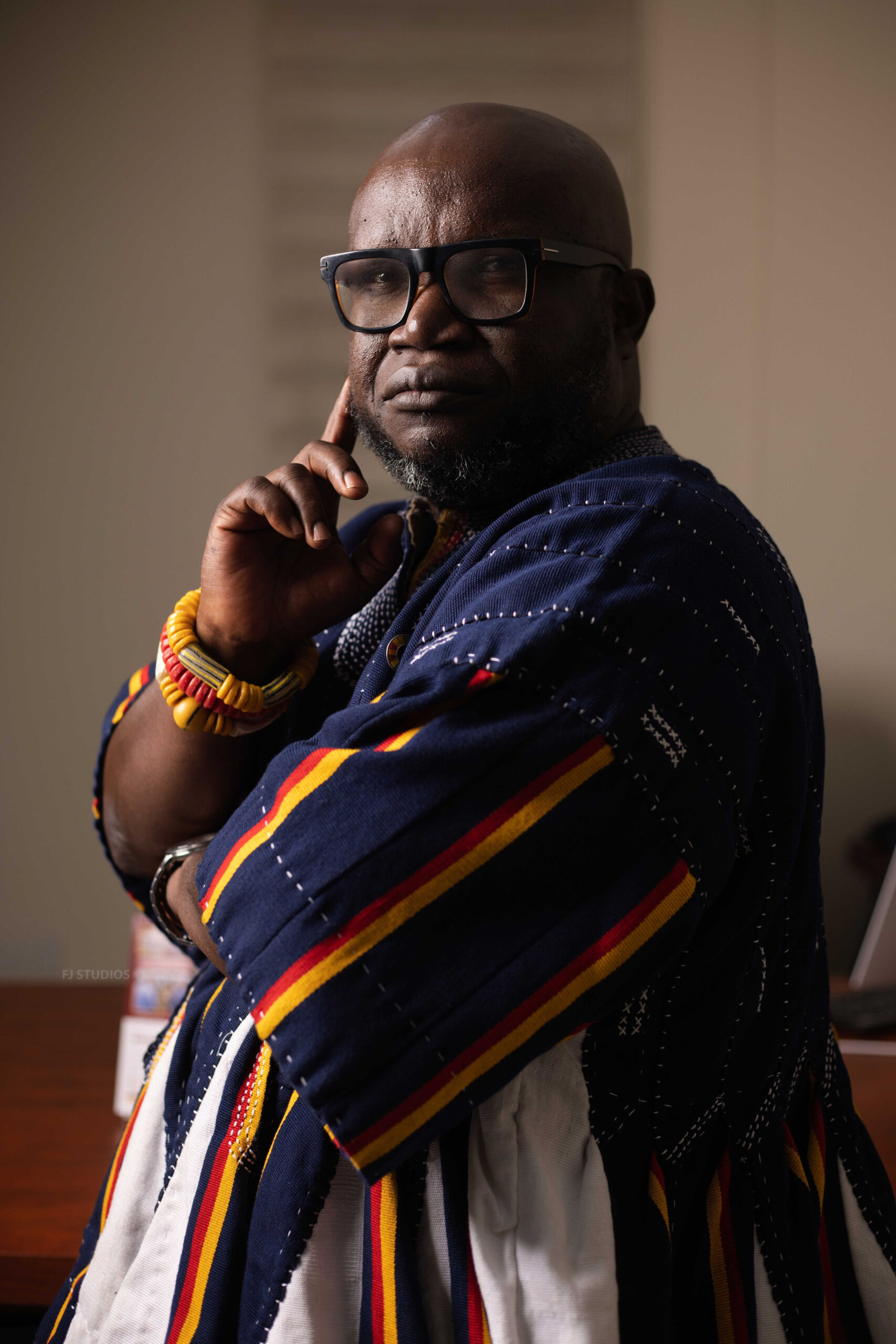The Use, Misuse And Abuse Of Honorary Doctorates In Ghana: My Thoughts
Introduction

IN RECENT TIMES, there has been an upsurge in the award of honorary doctorates by institutions of higher learning to several individuals within different strata of Ghanaian society. Several of these individuals no doubt deserve it, some generate controversy, while others are unequivocally dubious.
An honorary degree or a degree honoris causa (Latin: “for the sake of the honour”) is an academic degree for which a university ( or other degree-awarding institution) has waived the usual requirements, such as matriculation, study and the passing of examinations (http://www.thedailyguardian.net 25 March 2014). Usually the degree is a doctorate or less commonly, a master’s degree and may be awarded to someone who has no prior connection with the academic institution (http:// honorarydegrees.vvu.edu/history). For the sake of credibility therefore, it will be necessary to know the background of institutions awarding such degrees particularly so in Ghana where there has been quite a number of awards in recent times involving institutions that are relatively unknown.
Honorary degree is typically conferred as a way of honouring a distinguished visitor’s contributions to a specific field or to society in general. Often, it is given to graduation speakers at a university or college, and the university is expected to derive benefit by virtue of the association with the person in question. It is, important to note that an honorary degree by definition is not recognised by employers as corresponding to an earned doctorate degree and should therefore not be represented as such.
Recipients of honorary degrees are at liberty to list such degrees on their curriculum vitae as an award but under no circumstance should it be listed in their education section. To check the abuse of such titles, some universities and colleges have policies on the use of the title ‘Dr’ in formal correspondence. Within the Ghanaian context, one wonders the specific contributions of several honorifics to merit such awards. Do some individuals deliberately misrepresent the use of such degrees to create the wrong impression in the minds of the public? Honorary degrees are not awarded for mediocre achievements and academic institutions must jealously guard it and be frugal in awarding it. An institution of higher learning should be careful in casting their pearls before swine.
Historical Antecedents
History has it that the award of honorary degree dates back to the middle ages, when for diverse reasons a university might be persuaded, or otherwise see fit to grant exemption from some or all of the usual statutory requirements for the awarding of a degree. Records have it that the first honorary degree was awarded to Lionel Woodville in the 1470s by the University of Oxford who later became the Bishop of Salisbury. By the latter part of the 16th century, the granting of honorary degrees had become quite common, especially on the occasion of royal visits to Oxford or Cambridge. History therefore teaches us that awarding honorary degrees are not taken lightly. The tradition must be maintained.
Recent Practice
The modern practice is that honorary degrees are typically awarded at graduation ceremonies, at which the recipients are usually invited to make a speech of acceptance before the assembled faculty and graduates. The speech by the recipient represents the highlights of the ceremony. Typically, universities and colleges nominate a number of distinguished persons each year for honorary degrees. The nominees are expected to go through several committees before receiving approval. The process is often shrouded in secrecy and nominees are generally not told until formal approval and invitation are made. It may even generate controversy. The general concern in Ghana however, is whether some of these awarding institutions take recipients through such rigour and have the necessary systems in place in awarding such degrees.
Although higher doctorates such as DSc, or DLitt, etc, are usually awarded honoris causa, in several countries including England, Scotland, Ireland, Australia and New Zealand, it is still possible to formally earn such a degree. Such an applicant must submit a portfolio of peer- reviewed research undertaken over a number of years which has substantially contributed to the academic field in question. Such an applicant usually has a strong formal connection with the institution in question, for instance, full-time academic staff, or graduate of several years standing. Some universities or colleges however seek to differentiate between substantive and honorary doctorates (often DUniv, or Doctor of the University) which is employed for such purposes with the other higher doctorates strictly reserved for formally examined academic scholarship.
Like everything in life, two extremes have seen established in awarding honorary degrees, that of honouring celebrities and formally assessing a portfolio of research. Between these two extremes, some universities and colleges use honorary degrees to recognise achievements of intellectual rigour comparable to an earned university degree. To avoid some of these grey areas, some universities and colleges do not confer honorary degrees as a matter of policy. These notably include Massachussets Institute of Technology ( though on rare occasions MIT awarded professorships to Winston Churchill in 1949 and Salman Rushdie in 1993), Cornell University, Stanford University, University of Mississippi, California Institute of Technology, Rice University, etc. Some universities like UCLA has imposed a moratorium on awarding honorary degrees and instead honours notable people with the UCLA medals. It is evident therefore that irrespective of the perspective of a particular institution, the common denominator is that institutions seek to differentiate between honorary degrees and earned degrees and they do not intend the two to be used as same or placed on the same pedestal.
Practical Use
In some countries, the convention is that recipients of an honorary doctorate may, if they wish, adopt the title of “Doctor”. It is important to realise that many universities however, insist that honorary graduates refrain from such practice. A quote from the Oxford Brooks University Regulations states in part “Honorary graduates may use the approved post-nominal letters. It is not customary, however, for recipients of an honorary doctorate to adopt the prefix ‘Dr’ ”. While it may be a matter of personal preference for an honorary doctor to use the formal title of “Doctor”, as some universities preach, the written communication accompanying an honorary doctorate usually include the letters “h.c”(“honoris causa”) after the award.
Admittedly, some notable persons (past and present) use(d) the honorary prefix including Benjamin Franklin, Billy Graham, Maya Angelou, Samuel Johnson, etc but it is clear that these are very distinguished personalities with global appeal and received their awards from well-recognised institutions such that no one can genuinely raise any objection to the conferment of such awards on them. An individual who has an honorary degree conferred on him/her may add the degree title post nominally, but should be clearly articulated that THE DEGREE IS HONORARY BY ADDING “honorary” or “honoris causa” or “h.c.” in parenthesis after the degree title. Some countries allow a recipient of honorary doctorate to use the title “Doctor” prenomnally, abbreviated “Dr. h.c.” or “Dr. (h.c.)”. In some instances, they use “Hon” before the degree letters, for example, “Hon Dr.”
In recent years, the more acceptable practice for some universities is to use an entirely separate post nominal titles for honorary degrees. This is in part to avoid the frequent abuse or misuse of honorary degrees in recent times such as the case of Ghana. It is now the acceptable norm in several countries to use certain degrees, such as LLD or HonD as purely honorary. For instance, an honorary doctor of the University of Professional takes the special title LLD or HonD instead of the usual PhD. Some universities like the Open University grant Doctorates of the University (DUniv) to selected nominees, while awarding PhD or EdD degrees to recipients who have met the academic requirements. Most American universities generally confer the degrees of LHD (Doctor of Humane Letters), LLD (Doctor of Laws), PedD (Doctor of Pedagogy) ScD (Doctor of Science) the LittD (Doctor of Letters) and the DD (Doctor of Divinity) exclusively as honorary degrees.
Controversy
It is alleged that some institutions of higher learning grant honorary degrees in exchange for some favours, for example, large donations. Similarly, awarding honorary degrees to political figures can sometimes result in protests from faculty or students. For instance in 2001, George W. Bush was awarded an honorary doctorate from Yale University where he previously earned his bachelor’s degree in history in 1968. Some students and faculty boycotted the university’s 300th commencement as a result. In 1985, BBC reported that as a deliberate snub, the University of Oxford voted to refuse Margaret Thatcher an honorary degree in protest against her cuts in funding for higher education. Interestingly, this award had previously been awarded to all Prime Ministers who had been educated at Oxford.
The year 2007 saw protesters demanding that the University of Edinburgh revoke an honorary degree awarded to Zimbabwean president Robert Mugabe in 1984. As a result, the university decided to review its honorary degree policy and revoke the honorary degrees awarded to certain personalities. Mugabe was therefore stripped off his honorary degree. More importantly, a more rigorous selection procedure was adopted by the university with the express aim of reviewing the trend of awarding honorary degrees to celebrities. As if this was not enough, University of Massachusetts Amherst revoked the honorary degree awarded to President Mugabe over twenty years ago in 2008 at the behest of students of the university. Further, in 2009 there was controversy over the award of an honorary degree to President Barack Obama by the Notre Dame University, a catholic institution, on the grounds that Obama holds pro-choice views on abortion which the Catholics church frowns on. Still on Obama, the Arizona State University refused to award him an honorary degree that same year for the perceived “lack of adequate qualifying achievements thus far”(http://www.cnn.com/2009/POLITICS/05/13/obama.commencement) . The simple truth is that awarding an honorary degree is no child’s play. It should be thoroughly considered and awarded to deserving personalities.
Conclusion
The real concern for a lot of academics, professionals and key stakeholders is the fact that honorary degree recipients, especially those who lack prior academic qualifications sometimes insist on being called “Doctor “as a result of the award and thereby deliberately on inadvertently mislead the general public about their qualifications. Such people come across as lacking confidence in their own abilities and suffering from inferiority complex. People who deserve such awards, no doubt, should be given. In the same token, such honorifics should be sincere, honest and truthful to let the public know that the degree is purely honorary. For universities and colleges, they must safeguard (or build) their reputation by establishing a rigorous process in the selection of recipients. Only proven, notable, concrete achievers should earn such awards. Finally, universities and colleges must lead the fight to expose dubious institutions who award honorary degrees in exchange for donations, publicity stunt, or for other dubious reasons when it is clear as daylight such characters do not deserve the supposed awards. Let us keep the sanctity of the academic institution by doing what is right as far as awarding honorary doctorates is concerned.
Written by Dr. Abednego F. Okoe Amartey. Head of Marketing Department-University of Professional Studies, Accra and Vice President, Consumer Advocacy Centre-Ghana
This post has already been read 1453 times!







Post Comment